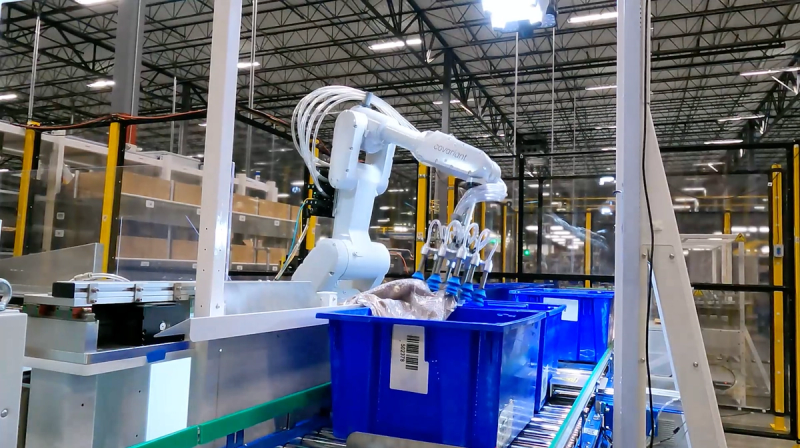In AI Robotics, achieving 99% reliability—where human intervention is needed less than 1% of the time—is the critical threshold separating commercially viable solutions from costly experiments. Traditional robots and those powered by specialized AI models have consistently struggled to adapt to the unpredictable nature of real-world warehouse operations.
Robotics Foundation Models represent a paradigm shift in Artificial Intelligence. By learning from a diverse array of tasks and scenarios, these models have unlocked a level of flexibility and reliability previously thought unattainable.
The true measure of an autonomous solution lies in its ability to function not just under ideal conditions, but in the face of real-world imperfections. Warehouse environments are far from pristine testing floors—products fall, labels stick together, and unexpected issues arise regularly. A system’s response to these inevitable challenges defines its practical value.
Our approach minimizes human intervention even when errors occur, pushing towards true autonomy. Four years into Covariant, we achieved the reliability levels required for robots to operate in a commercially meaningful way. Our robots handle everything from routine tasks to the most challenging (and inevitable) edge cases: fragile items, drops, and errors – delivering results at scale.
This focus on autonomy and adaptability addresses a core industry need, delivering a fundamental shift in operational efficiency. By significantly reducing the need for human intervention, we’re expanding the boundaries of warehouse automation capabilities.
